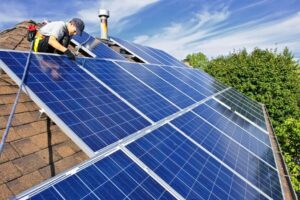Solar energy systems are designed to provide reliable and sustainable power for homes and businesses. A key component that ensures these systems operate safely and efficiently is the solar panel fuse. These small but essential devices act as protective barriers, preventing damage from electrical surges or faults. By automatically interrupting the flow of excessive current, fuses safeguard the entire solar array, extending the life of panels, inverters, and wiring. Using proper fuses helps maintain system performance, avoid costly repairs, and ensures continuous clean energy production without interruptions.
How Solar Panel Fuses Work
Solar panel fuses are electrical safety devices installed within the solar array or the combiner box. They are designed to protect circuits by breaking the connection when the current exceeds a safe limit. This prevents overheating, fires, or damage to other components. Exploring fuse holder types online can provide specifications, ratings, and compatibility details for various fuses.
Key points about solar panel fuses:
- Overcurrent protection: They stop excessive current that could harm panels or inverters.
- Automatic response: Fuses act instantly to cut off electricity when necessary.
- Simple installation: They can be easily placed in series with solar panels or strings.

Types of Solar Fuses
There are several types of fuses commonly used in solar systems. Selecting the correct type ensures the system operates safely and efficiently:
- Cartridge fuses: Suitable for high-current applications, providing reliable protection.
- Blade-type fuses: Compact and often used for smaller panels or low-voltage systems.
- DC-rated fuses: Specifically designed to handle direct current from solar panels, reducing the risk of arc faults.
Benefits of Using Solar Panel Fuses
Incorporating fuses into a solar energy system offers several advantages that enhance safety and longevity:
- Prevents equipment damage: Fuses stop short circuits and overcurrent situations from harming sensitive components.
- Reduces fire risks: Proper fusing lowers the chance of overheating or electrical fires.
- Extends system lifespan: By protecting panels, inverters, and wiring, fuses contribute to longer operational life.
- Low maintenance: Fuses require minimal attention but provide consistent protection.
- Cost-effective solution: Preventing damage with fuses is far less expensive than replacing damaged solar components.
Installation Tips for Maximum Safety
To ensure solar panel fuses provide optimal protection, consider these best practices:
- Match the fuse rating to the panel’s current specifications.
- Use DC-rated fuses for direct current applications.
- Install fuses in easily accessible locations for inspection and replacement.
- Regularly check fuses for signs of wear or damage.
Conclusion
Solar panel fuses are an essential part of clean energy systems. For safe operation, every solar installation must include a properly sized solar panel fuse at the system’s input. They act as guardians of the solar array, preventing overcurrent, minimizing risks, and supporting long-term efficiency. By choosing the right type of fuse and ensuring proper installation, system owners can enjoy uninterrupted power generation, safer operations, and a longer-lasting solar investment. Fuses are simple yet powerful devices that make a significant difference in the reliability and durability of solar energy systems.


